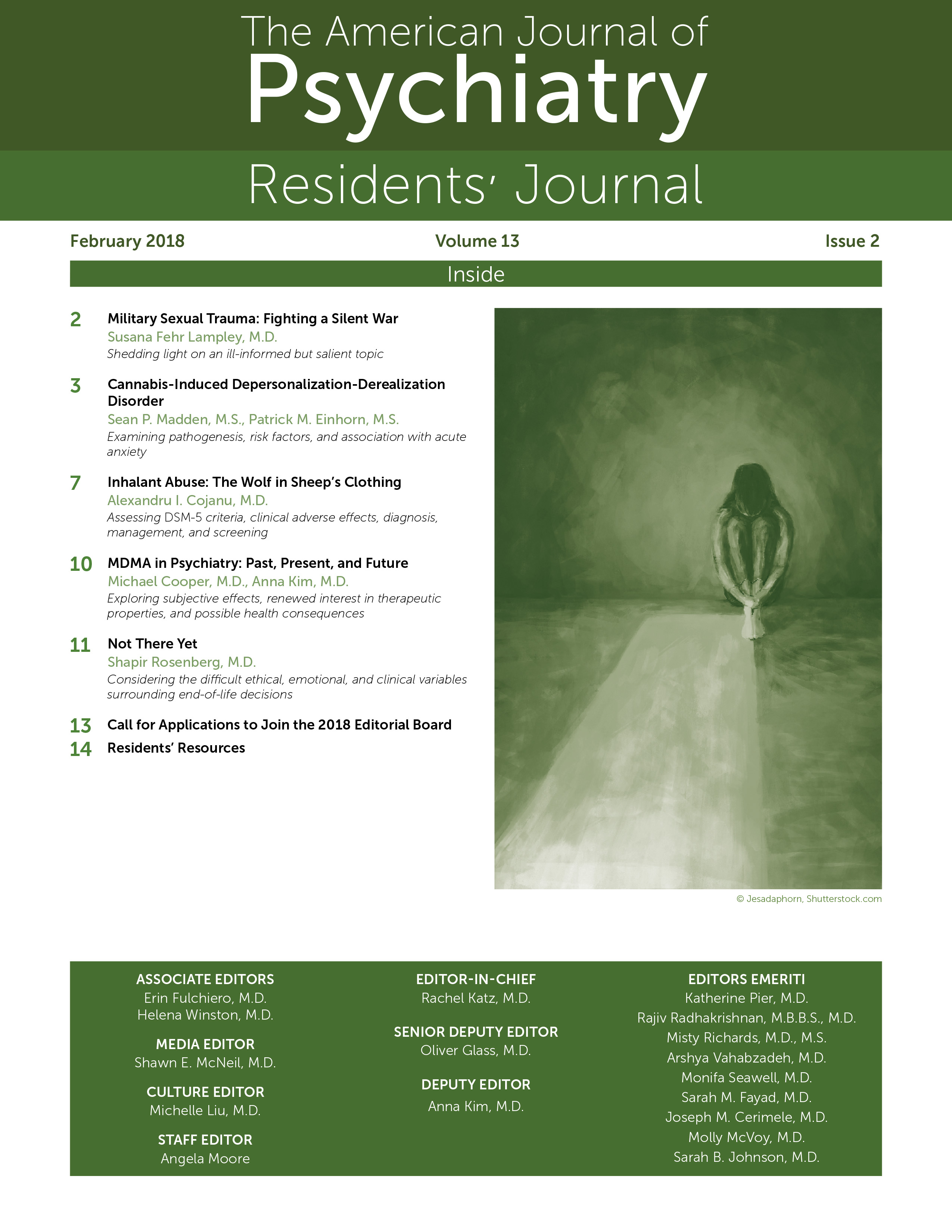Since the First and Second World Wars and the Vietnam War, society has shifted toward recognizing that soldiers who experience posttraumatic stress disorder (PTSD) are not weak or malingering but are, instead, individuals enduring the residual psychological trauma of war. However, society is nowhere close to similarly recognizing PTSD associated with military sexual trauma.
In my experience, it seems that many veterans who have experienced military sexual trauma can process their combat-related PTSD relatively directly, while remaining unable to discuss the sexual trauma. Herein lies the dilemma of PTSD caused by military sexual trauma—it very often remains in hiding, including within the public sphere and in the media. These public arenas often create avenues enabling society to empathize with the experiences of others.
Therefore, if public conversations influence how trauma is conceptualized, what are we being told? Veterans often use their combat narratives as a badge of honor, and story-telling among veterans provides opportunities to process experiences in a public way. Outside of first-person narratives, films such as Dunkirk (2017), which grossed $50.5 million in its opening week, create avenues for cultural empathy toward war-torn soldiers.
However, these avenues do not yet exist for military sexual trauma. There are minimal public narratives available in the media to inform the general public about military sexual trauma. In fact, until the women's liberation movement of the 1970s, it was not even recognized that the most common posttraumatic disorders are found not among veterans, but among women in civilian life working through sexual trauma. Although combat-related PTSD has found its place in public conversation, PTSD caused by sexual trauma is only beginning to catch up, and military sexual trauma is lagging even further behind.
I believe that this creates significant problems for survivors processing their trauma. When one female soldier who experienced sexual trauma told me her story, she spoke quietly—her tone flat, her demeanor distant, and her eyes empty. She took no pride in her military service. Perhaps this is partially because she knew that she would never be recognized by the general public. For instance, she will not be applauded by millions at events. Her sacrifice will never be inscribed on a wall to which millions will make a pilgrimage in her honor. She will not see her story in a film. Society has yet to acknowledge her experience. Combat-related PTSD is valorized in our culture, but sexual trauma often brings responses of discomfort, pity, and silence.
The question for psychiatrists then becomes this: how are we treating our patients who have experienced military sexual trauma? Like heroes, victims, or survivors? How are we informing the public about military sexual trauma? We cannot shift perceptions of military sexual trauma overnight—this was not even the case for war-related trauma—but we can begin to raise awareness and make efforts to recognize and push against the contrasted perceptions of PTSD and sexual trauma. I argue that the navigation of this issue shouldn't solely begin with women and/or veterans, but with our praxis as psychiatrists.
